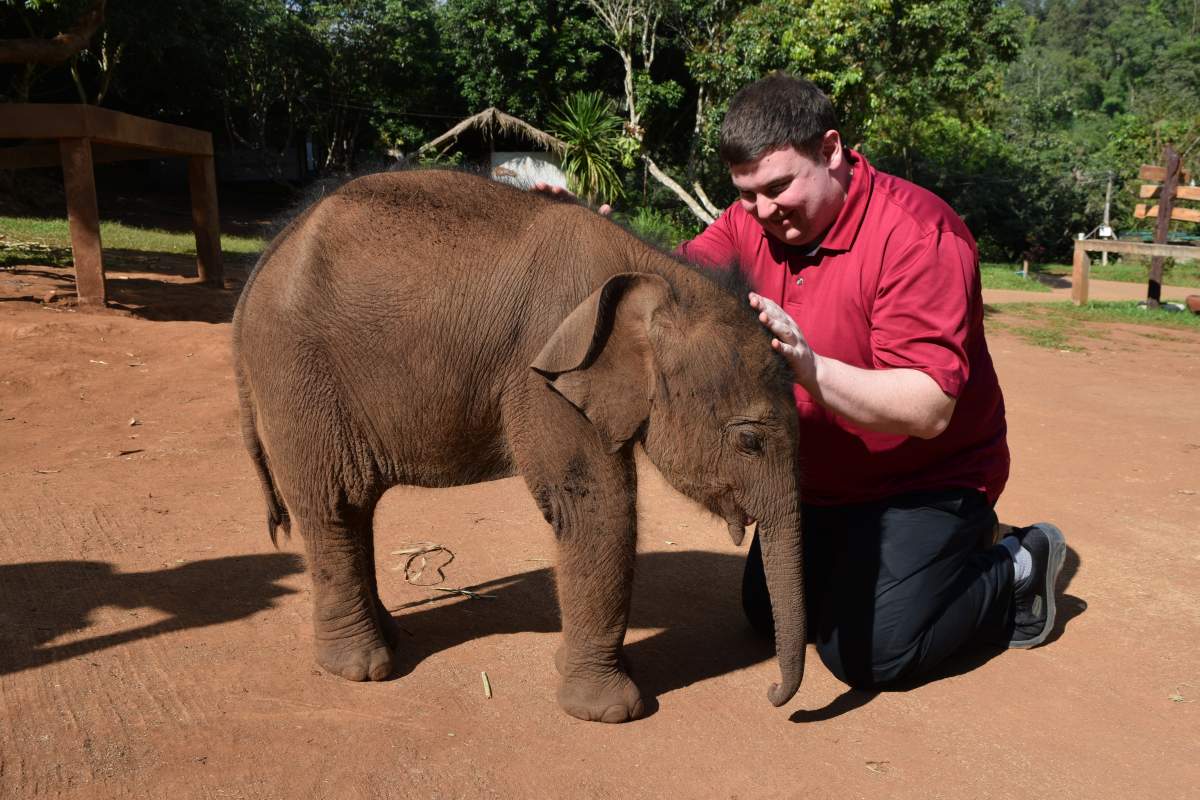BANGKOK— If you want something done, do it yourself. That’s the ethos embraced by some tourism sector companies in Thailand when it comes to the environment.

In North America, activists may frame corporations as the environment’s enemy. But here, the opposite is true.
Thailand welcomes more than 30 million tourists each year, ranging from culinary to cultural. As travellers seek to be more environmentally conscious, some companies have decided to make investments into the protection of the country’s flora and fauna.
One initiative that stands out is the Four Seasons Resort Koh Samui’s new Coral Conservation Project.
Located in the Gulf of Thailand, Samui is Thailand’s second largest island, and, as such, is a hot spot for tourists and locals alike. Samui boasts 20,000 hotel rooms, meaning its shores are subjected to a constant barrage of swimmers and boaters, in addition to the already-robust fishing operations around the island.
For Samui’s coral reefs, this traffic can be deadly.
So the island’s Four Seasons, one of the Toronto-based luxury chain’s properties, has staked a claim to a reef near its own shoreline and hired two full-time marine biologists to oversee the project, which launched earlier this year.
The biologists not only plant coral in the underwater nursery and relocate them to the reef when strong enough, but also serve as ambassadors to marine life for resort staff and guests.
“We can’t stop swimmers and fishers but we can educate them,” said Benjawan “Benji” Sansittisakunlird, one of the biologists. “We’re concerned about the marine ecosystem because we have a lot of marine life here. We’re willing to pay to protect the coral reef.”

Get breaking National news
Healthy reefs aren’t just about pretty colours, she told me — they allow populations of fish and other marine life to grow by protecting them from predators. Reefs benefit humans as well, by reducing the force of currents, thus mitigating property damage, flooding, and coastal erosion.
Sansittisakunlird said guests have embraced the project, showing up for semi-weekly beachside “Coral Talks” and going on guided snorkelling tours with the biologists.
I can’t tell you how delighted I was to learn I wasn’t the only person who, during a vacation, opted to sit in on a biology lecture (made all the more enjoyable by drinking out of a coconut throughout, albeit.)
The government has endorsed the Four Seasons’ initiative, but wasn’t the driving force behind it.
On the other side of Thailand, there is no public sector support for a company trying to save the country’s national animal — the elephant.
From gift shop trinkets to large sculptures, reminders of the endangered Thai elephant (a subspecies of Indian elephants) are everywhere, despite the plummeting population. In the last 30 years, the number has dropped from 6,000 to an estimated 3,200 nationally — a decline linked largely to illegal poaching and habitat encroachment.
As silly as it sounds, elephant unemployment has also played a role. Like horses in North America or camels in the Middle East, elephants were traditionally work animals in Thailand, used largely in the forestry sector before logging was banned in 1989.
Many elephants ceased to be useful to their owners and were left to die. The tourism industry has given them new purpose, but not without exploitation, sadly.
Chiang Mai’s Patara Elephant Farm has emerged as one of a small, but growing, number of operators leveraging tourists’ money and interest in elephants with the need for conservation and repopulation.
The sanctuary will buy and breed elephants to give them a safe haven on its privately-owned land. The program is funded by tourists, who pay to volunteer around the sanctuary and learn about elephant care.
I only spent a few hours at the camp, but during those I learned about several aspects of elephant health and wellness — most notably skincare, and the severe sunburns that can plague elephants without proper protection.
I learned about elephants in the greatest possible way — surrounded by them.
Owner Theerapat “Pat” Trungprakan doesn’t describe himself as an activist. In fact, he said activists, which occasionally target his business, have very little understanding of elephants, or the environmental realities affecting them.
His long-term goal is to boost the elephant population. This is only possible through tourists, who generally pay about $225 for the day-long programme, which sees them paired up with one of the farm’s elephants. Full disclosure: My wife and I were invited to participate in an abbreviated experience as members of the media, at no cost to us.
“Today, I want you to make friends with an elephant,” Trungprakan said. And that I did. My size makes it easy to mistake me for an elephant in some Thai villages, so it was an easy kinship to forge.
There are still concerns raised by some online commentators that selling access to elephants is inherently exploitative. But without the tourism, there wouldn’t be the money to invest in elephant care and repopulation at all. (And, it’s worth noting that elephants were able to roam free, even if they decided they wanted to get away from people.)
Conservation requires an investment, and, in Thailand, it’s tourism that has made that sustainable.
Andrew Lawton is host of The Andrew Lawton Show on AM980 in London and a commentator for Global News.












Comments